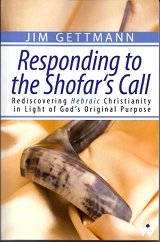Does Eternal Life ... truly mean Eternal?
The Waterhole Blog
I've had a thought tickling the back of my mind for at least 10 years, but I've never really taken the time to search it out. Till today, that is.
The Question has been, do the words "eternal life" truly mean endless life?
At the first glance, it sounds like a no-brainer. Look at the words, dummy! It says "eternal" right there! Yes, well - okay, but still, something doesn't seem quite right.
Did you know that Jesus defined the words, "eternal life" for us in John 17:3? And that the idea of endless life is in no way part of his definition? Let's look at it (starting with verse 1):
"Father, the hour has come. Glorify your Son, that your Son may also glorify you, as you have given him authority over all flesh, that he should give eternal life to as many as you have given him. And this is eternal life, that they may know you, the only true God and Jesus Christ whom you have sent..."
So, according to Jesus, eternal life means knowing the true God and knowing Jesus.
What does that have to do with living forever in heaven? Well, nothing, at least not directly.
Eternal life is life knowing (intimately, thoroughly) God, life lived out of the relationship with Jesus. This is actually quite different than our normal concept of eternal life, because we normally equate eternal life with life in heaven throughout eternity.
May I suggest that this misconception came about because our minds are trained in Greek rationalism? Quite naturally, we think in the way our culture thinks. It would be unnatural for us to think otherwise. Yet the Bible was written by people saturated in an ancient, middle eastern way of thinking.
The greek mind looks a this question and sees quantity of life. The ancient Hebrew mind sees quality of life. Cultural training runs deep. It is almost inconceivable for us to see it any other way.
What then is Eternal Life?
How can we describe Eternal Life then? Just as knowing God? I believe that eternal life describes the quality of life that we can grow into as we grow in our knowledge of God. Here I don't mean knowledge of God as in "accumulating ever more knowledge about God and the Bible," but rather as in our knowing God in exeperience, as the very present, loving Person with whom I share my days and in whose image I am being transformed day by day.
Jesus continued his prayer in John 17. As he went further in this talk with his Father he asked that we - his followers - be one, just as he is one with Father. Even more, he said, "that they may all be one, just as you, Father, are in me, and I in you, that they also may be in us, so that the world may believe that you have sent me."
In the same way that Jesus is one with Father and the Father with him, Jesus expects that we will be one with him; he will be in us and we will be in him. Let me put in another way. The Eternal life that we are given is the quality of life that we could call: Divine Life, the Life of God in us.
Not What Would Jesus Do, but Jesus in Me!
WWJD, otherwise famous as, "What Would Jesus Do," is a misunderstanding of what the bible teaches and misleading as to what this life is about. We are not called to merely imitate Jesus. That would be an impossible task as he lived a sinless, perfect life.
To live by WWJD can only be a frustrating and discouraging experience, because no one can measure up. It would be like putting a canvas before my young son and saying, "become a Leonardo di Vinci. Study his life, study his art and discipline yourself to become a new di Vinci. The poor kid would burn out under such unrealistic expectations.
The wonder of what God has actually given us is this: Eternal Life. The life of God himself in us. That's why Paul could say, "Christ in you, the hope of glory!" (Colossians 1:27) and "I have been crucified with Christ. It is no longer I who live, but Christ who lives in me. And the life I now live in the flesh I live by faith in the Son of God, who lived me and gave himself for me." (Galatians 2:20)
It is then not I who tries to do what Jesus did but Jesus himself who does it in and through me. My part is to walk in him, love him, know and experience him. Then from within he brings the change that results in a pure life.
Won't God's people live forever with Him?
Sure. But endless days are a consequence and byproduct of Eternal Life, not the purpose and meaning of eternal life itself. Because we live in Him, because we are in him and he in us and because our life is now bound up in his, we share the quality of Life that He has. He is Eternal. Our future is now bound up in what and who he is. So yes, we do know that we will live with him, days without end, but not because that is what the phrase "eternal life" means.
If you apply this new understanding to other verses about eternal life, it is amazing how the scriptures come alive with new meaning. Try it out on these verses:
"That whoever believes in him shall not perish but have eternal life." (John 3:15)
"And already the one who reaps is receiving wages and gathering fruit for eternal life, so that sower and reaper may rejoice together." (John 4:36)
"Whoever loves his life loses it, and whoever hates his life in this world will keep it for eternal life." (John 12:25)
"To those who by patience in well-doing seek for glory and honor and immortality, he will give eternal life." (Romans 2:7)
"That which was from the beginning, which we have heard, which we have seen with our eyes, which we have looked up and have touched with our hands, concerning the word of life. The life was made manifest, and we have seen it, and testify to it and proclaim to you the eternal life, which was with the Father and was made manifest to us." (1 John 1:2) Actually, according to John here, eternal life is Jesus himself.
Of course we see in some of these verses the concept of Eternal life being the opposite of perishing, dying. But that is also because in scripture life = moving closer to God. Spiritual death, on the other hand, = moving away from God. In the moment that you begin to distance yourself from God, you begin to die inside, as Adam and Eve found out.
"But aren't you fuzzing over the plain meaning of the word eternal?"
Actually, no. The Greek word for eternal is aionios, which means "for an eon," or "for an age." So it doesn't communicate everlasting days.
But when Jesus was speaking, he wasn't speaking Greek. In Hebrew the word is "l'olam." Olam turns out to be an interesting word. It also translates as world, universe. The ancient root of the word means "stretching off into the far distance."
According to Jeff Brenner at the Ancient Hebrew Research Center www.ancient-hebrew.org :
"When looking off in the far distance it is difficult to make out any details and what is beyond that horizon cannot be seen. This concept is the olam. The word olam is also used for time for the distant past or the distant future as a time that is difficult to know or perceive. This word is frequently translated as eternity or forever but in the English language it is misunderstood to mean a continual span of time that never ends. In the Hebrew mind it is simply what is at or beyond the horizon, a very distant time. A common phrase in the Hebrew is "l'olam va'ed" and is usually translated as "forever and ever" but in the Hebrew it means "to the distant horizon and again" meaning "a very distant time and even further" and is used to express the idea of a very ancient or future time."
Pulling it all together now, Eternal Life is that hugeness of life which stretches off before us, appearing, like the horizon and beyond, never to end. It describes the hugeness of God himself, difficult to perceive and know perhaps, but worth every second invested in this grandest of all pursuits! Eternal life is the life of God which grows and fills us as we draw near to him. It is the Life which makes us holy, it is that which preserves and protects us. It is Jesus in us and we in him.
As John said, "we proclaim to you the eternal life which was with the Father and was made manifest to us, Jesus Christ."
 Responding to the Shofar's Call
Responding to the Shofar's Call
Recent Posts
2013
2012
2011
2010
- Is Eternal Life truly Eternal?
- What does "Wait on God" mean?
- The Beauties of the Desert
- The Desert Wedding
- Can a Duck Walk?


New! Comments
Have your say about what you just read! Leave me a comment in the box below.